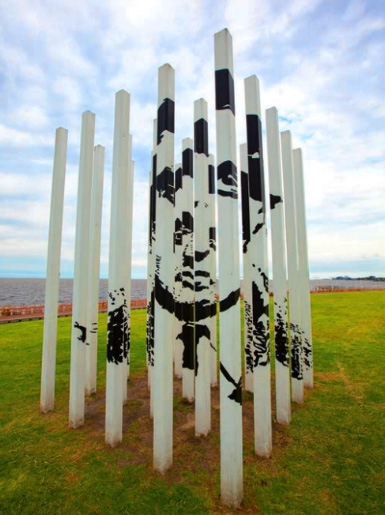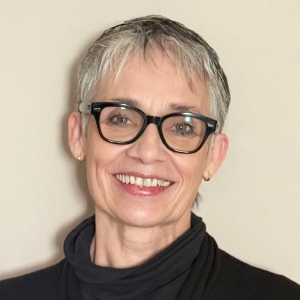Ni olvido ni perdón – neither forgetfulness nor impunity for perpetrators – are special words to Guillermina Seri.
The motto has inspired millions of people, and Seri's own research into the activism and policies memorializing human rights abuses in Argentina, Chile and Uruguay.
"As a native of Argentina, the policies of state terror of the last military dictatorship stand as a life-defining, very personal subject for me," Seri explained. "Growing up under conditions of state violence, amid military coups, routine curfews, checkpoints, official censorship and the most sinister things – including the vanishing of students, journalists, professionals and, in my case, a social sciences teacher at school – left deep marks on generations of Argentines."
"Going to college, just as democracy was returning, I started learning about the true scope of the military's terror campaigns, their hundreds of clandestine camps and the thousands of forced disappearances," she continued. "This quest brought together a patchwork of personal memories and experiences into more articulate intellectual and political pursuits."
She's been studying state human rights abuses ever since.
Most recently (June - August 2022), she traveled in South America assessing initiatives and policies memorializing the atrocities committed by military dictatorships in Argentina from 1976-1983, Chile from 1973-1990 and Uruguay from 1973-1985.
"The main goal of my study is to draw lessons about the appropriate forms of state support for memorializing state abuses in ways that help consolidate a human rights agenda, and appreciation for human rights and democratic life," Seri said.
"My fieldwork consists of visiting and documenting memorial sites while conducting interviews with officials, activists and experts," she continued. "Questions about the past and remembrance, the role of citizens and the government in memorializing human rights abuses, and the relations between the politics of memory and the framing of human rights in democracy are central in my study."
Each country has made progress in memorializing atrocities and committing to democracy.
"Argentina has been democratic since 1983, Uruguay since 1985 and Chile since 1990," Seri said. "Varieties of Democracy ranks both Uruguay and Chile among the strongest liberal democracies in the world in 2022."
All three countries are preserving, protecting and establishing sites of memory, including at locations where detention, torture and extermination took place – like former secret camps or prisons. Some of these places have also become historic sites or parks that are now open to the public.
But such actions have not come easily.
In Argentina, "characterized as a global ‘trailblazer' in matters of human rights as early as 1985, the democratic government held historic trials of military Juntas," Seri said. "They were a major milestone in international human rights after Nuremberg."
But prosecutions for human rights violations under military rule were interrupted for many years in Argentina and resumed only in 2006, she added.
In Chile, an amnesty decree protected those who committed human rights violations during the military dictatorship into the 2010s. And in 1986, Uruguay passed a controversial "expiry law" banning perpetrator prosecutions.
In turn, "Uruguayans had to reverse attempts to erase the past, including the transformation of a main prison (Punta Carretas) into a shopping mall," Seri said.
Such resistance to sanctioned erasure of the past is paramount, and today's governments have a responsibility to preserve history accurately.
In its Resolution 3/2019 on Principles on Public Policies on Memory in the Americas, the Organization of American States (OAS) endorses a "comprehensive approach to memory." It instructs member states to adopt public policies in conjunction with justice and accountability initiatives.
"Protecting human rights abuses, honoring citizens' right to truth and offering reparations are now state duties," Seri said. "Governments are also obligated to support memorialization through funding and by promoting plural perspectives in the construction of public memory."
This support and the progress it has helped nurture comes at a critical time.
"After decades of democratic expansion worldwide, a global reversal is taking place toward the rapid rise of authoritarian leaders and regimes," Seri said, noting that the 2022 Varieties of Democracy report shows the level of democracy enjoyed by the average global citizen in 2021 reverted to 1989 levels.
"The long-lasting, traumatic experiences and legacies left by military rule in Argentina, Chile and Uruguay should serve as a warning about the dangers of banalizing – and losing – democracy," she continued. "The democratic politics of memory are here to remind the world of how and why both human rights and democracy matter – an urgent message in 2022."
Seri's work also looks at how governments can best support memorialization of state-sponsored atrocities, as well as the impact this support has on current human rights practices and agendas. Her research is supported by an American Political Science Association Summer Centennial Center Research Grant from the William A. Steiger Fund for Legislative Studies.


